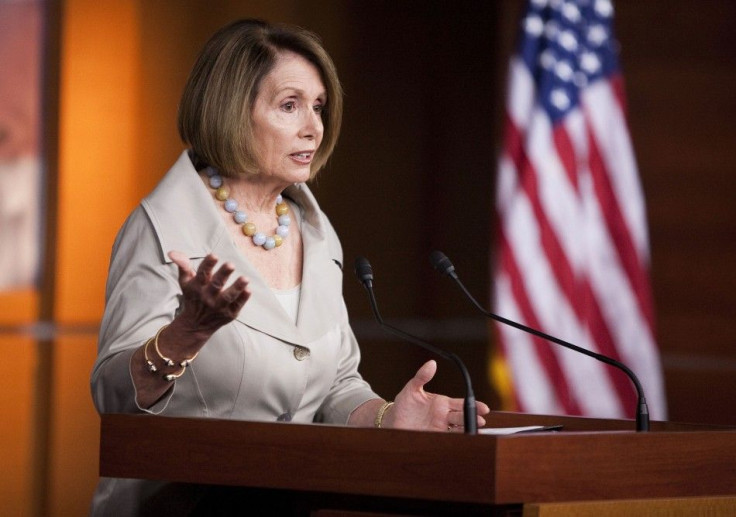If Debt Deal Isn?t Ideal, Why Is It Up for a Vote?
Analysis

It is a bit of a paradox: the debt deal is a bill that's pleasing to few, and yet Congressional leaders expect the bill to pass both chambers. How is this possible?
In a nutshell, the deal is "good enough to go" in Washington-speak, and it will be up to the "sensible center" or moderates in each chamber, particularly in the House, to push the debt deal through Congress.
In The Senate, It Takes 60 to Govern
In the Senate, the debt deal bill is expected to attract well over 60 votes, which is comforting for the bill's backers, given that "it takes 60 to govern" in today's filibuster-every-issue Senate. The debt deal bill may end up netting 80 "yes" votes in the Senate.
Those voting no could very well be mostly "district protectors" -- lawmakers who vote no if party leaders have calculated that a no vote will help a Senator in an election in 2012, and the party leaders do not need the vote to pass the legislation. But there will be several "no" votes on principle, as well.
Big Hurdle: The House
The House is another story, however. There, Speaker John Boehner, R-Ohio, will likely need moderate Democrats to offset Tea Party/Conservative defections. How many will Boehner need? Good question.
Minority Leader Nancy Pelosi, D-Calif., may have an answer. Pelosi still has considerable influence in her caucus, particularly among liberal members, and if she can persuade most liberal Democrats to vote for the debt deal, that would make Boehner's task that much easier.
Conversely, if Pelosi inspires a boycott -- a large "no" vote by House Dems -- that would jeopardize the legislation. However, a boycott is not expected.
Even so, Pelosi could argue, and with considerable truth, that since the bill reflects largely Republican and conservative priorities, that Boehner and the Republicans should do most of the heavy lifting. Further, Pelosi has not publicly endorsed the bill, but she has not said if she would vote no, perhaps not wanting to signal House weakness to bill on which the U.S.' credit rating is riding.
"We all agree that our nation cannot default on our obligations and that we must honor our nation's commitments to our seniors and our men and women in the military," Pelosi said Monday, in a statement. "I look forward to reviewing the legislation with my caucus to see what level of support we can provide."
On Sunday, Congressional Democrats and Republicans approved the outline for the bipartisan, $2.5 trillion debt-reduction deal Sunday that would avert a potentially catastrophic default.
Congress needs to raise the debt ceiling by Tuesday, when the federal government both runs out of money and loses the authority to borrow more money. A failure to do so would likely further upset stock, bond, and currency markets.
Those markets expressed relief Monday -- Europe's markets were down about 1 percent but U.S. markets were flat at midday -- but that calm could end in hurry, if the debt deal runs in to House resistance.
The emerging bipartisan debt deal includes a two-step process to cut the deficit by about $2.5 trillion over a decade.
Lawmakers have already largely agreed on caps to annual discretionary spending over 10 years. Officials from both parties say that would save $1 trillion, while the nonpartisan Congressional Budget Office puts the figure at $750 billion.
Another $1.5 trillion would be identified by a special 12-member, committee -- six Democrats, six Republicans -- appointed by Congress and have automatic "trigger cutbacks" -- including cuts to popular Medicare and U.S. Department of Defense programs -- if the committee did not undertake the additional "heavy lifting" to enact the second-stage cuts.
The rationale for the "trigger cuts" argues that the 12-member committee is much more likely to make the cuts if the alternative is deep cuts to preferred programs: Medicare, in the case of the Democrats; Pentagon defense contracts, in the case of the Republicans.
Political/Public Policy Analysis: In a nutshell, Pelosi could make things very difficult for Boehner. The debt deal bill contains very little in terms of liberal policy priorities -- the chief of which being tax fairness. The bill doesn't even off tax reforms -- reforms that many conservatives favor, as well -- that would increase federal revenue, and further fight the deficit. In other words, it would be understandable if Pelosi protested.
But the calculation here is: Pelosi won't. There is too much at stake and Pelosi is not going to risk triggered a credit market meltdown for one or two Democratic points. The tax, for the time being, has been lost. But as they say in Washington, there will be another day.
Based on Pelosi likely benign stance, we're keeping the risk barometer, on a scale of 0 to 100 percent, of the likelihood of a U.S. Government default, at 15 percent on Monday at mid-day, the same as Monday morning.
© Copyright IBTimes 2025. All rights reserved.





















